A Visionary Journey: Rabbi Arusi's Revolutionary Dream
In an exclusive interview, Rabbi Ratzon Arusi discusses his groundbreaking initiative to establish biblical law courts and shares his unique experience of nearly becoming an Israeli Supreme Court judge.
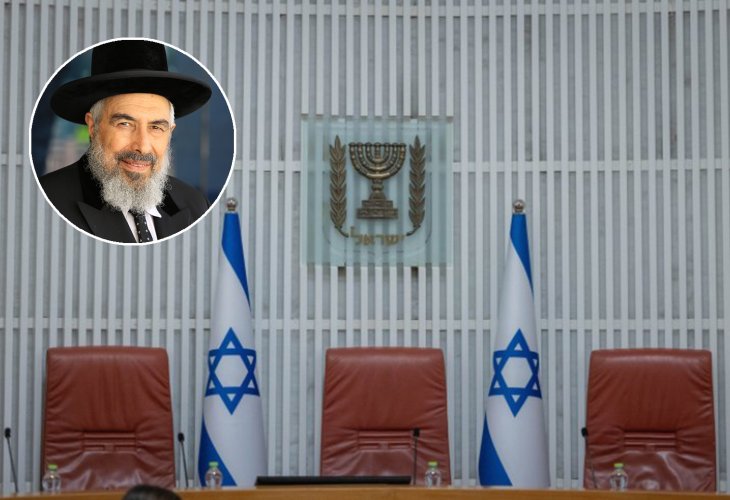 (Photo: Chaim Goldberg, Flash90)
(Photo: Chaim Goldberg, Flash90)Do you remember a year ago when the phrase "reasonableness grounds" was one of the most discussed in the media? Do you recall the Israeli Supreme Court rulings against the Torah world and the battles within the rabbinical courts? If you're a bit older, you might also remember the judicial activism and the "everything is judiciable" revolution initiated by former Supreme Court President Aharon Barak. You might be surprised to hear that Rabbi Ratzon Arusi has a similar revolution in mind. "Very soon at the 'Halichot Am Yisrael' center, judicial courts with numerous panels will be established," he says, "thus, the legal system in Israel will return to biblical law."
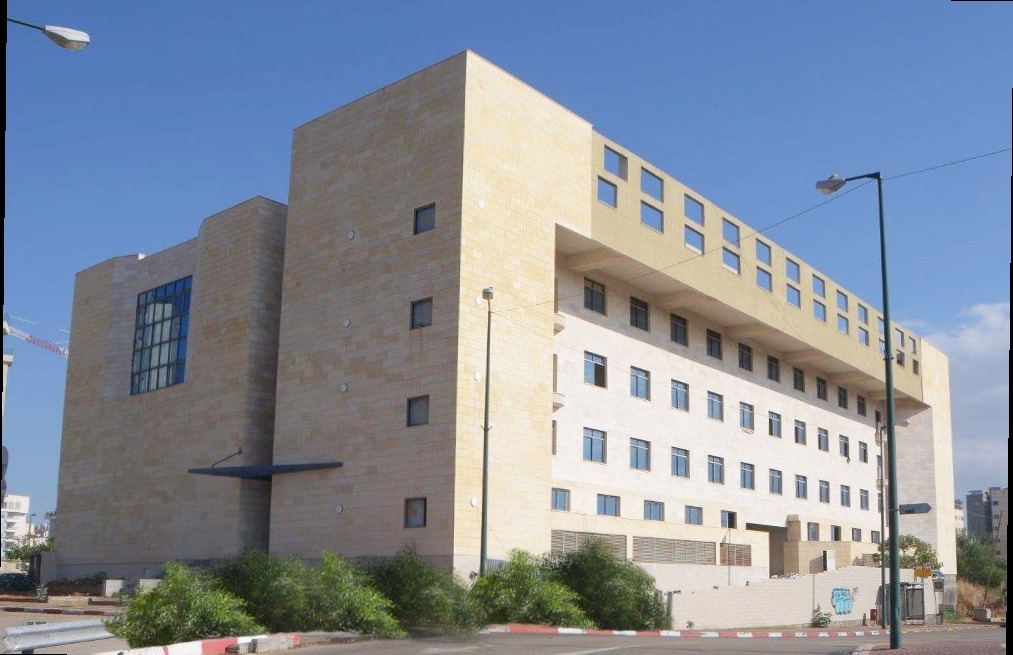
The "Halichot Am Yisrael" organization is the life work of Rabbi Ratzon Arusi, 80, the Chief Rabbi of Kiryat Ono and a member of the Chief Rabbinate Council of Israel. It's his 40th year in the Israeli rabbinate, during which he also serves as the Chair of the National Marriage Committee and the Interfaith Dialogue Committee.
With so many challenging roles, why is "Halichot Am Yisrael" your main focus?
"From the time I studied law at Bar-Ilan, I saw the great danger hovering over the Jewish identity of the State of Israel from this realm. A little later, I realized that the danger begins at the highest, most senior levels. Therefore, I founded 'Halichot Am Yisrael', intended to spread biblical laws and adjudicate based on them.
"I remember that forty years ago, I approached all the great thinkers of the era in Israel and worldwide and told them: 'Know that we have a great threat, and we must lay the foundation for a religious legal system.' With their backing and mission, I initiated a large annual panel to which I invited rabbis and judges from all sectors and communities. This panel, held in a hotel and lasting for two full days, hosts fascinating lectures on the most complex issues that the judges have to deal with."
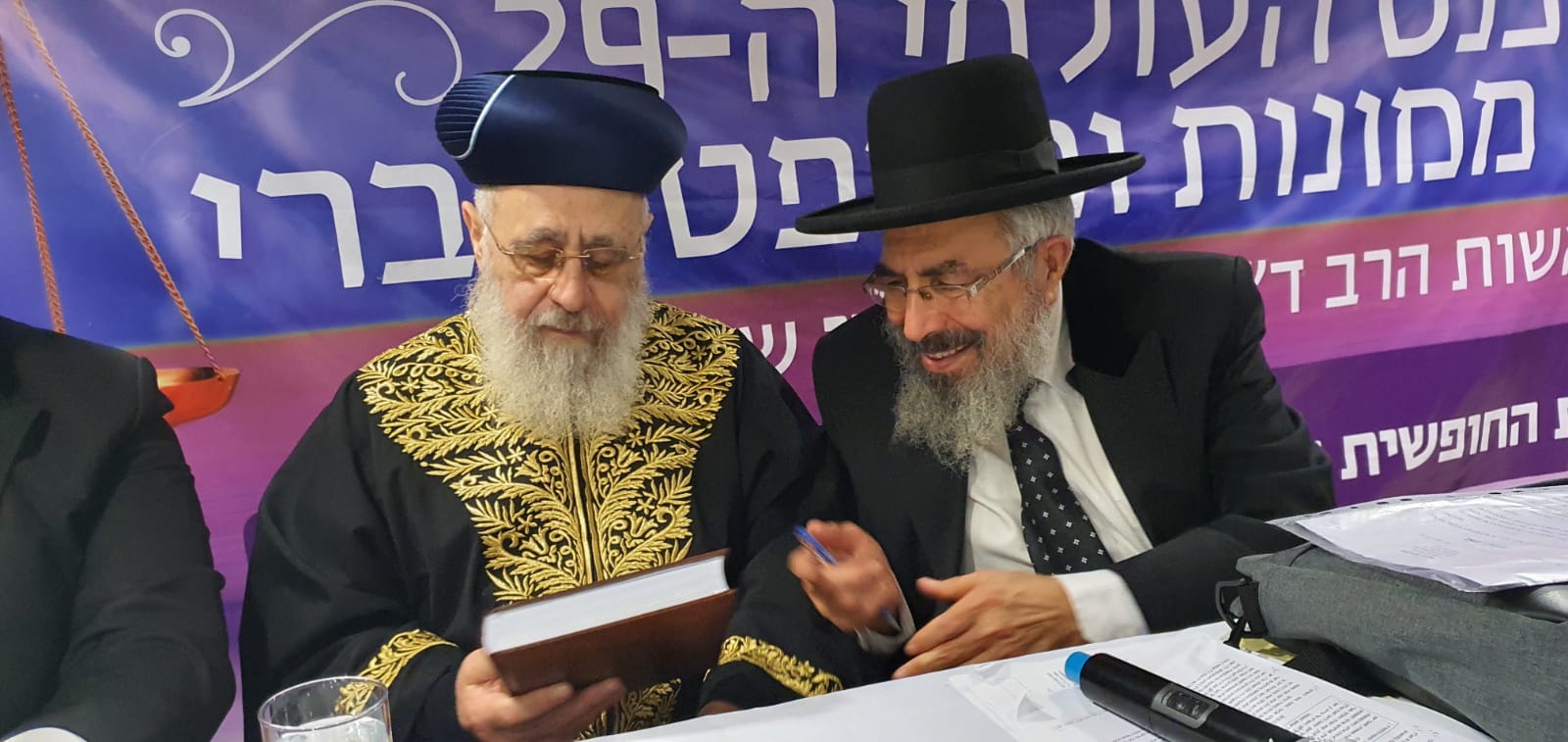
"They Offered Me a Position as a Supreme Court Judge"
Twenty years ago, Rabbi Arusi laid the foundation for the "Halichot Am Yisrael" center, located near the military induction base in Kiryat Ono. "The complex includes a large synagogue, a training hall, and three court offices with large halls and secretariat rooms," Rabbi Arusi shares. "There are over 400 individuals qualified for dayanut (serving as judges in religious courts) in Israel. My vision is to train them in all halachic matters related to monetary law, so they will address case after case in these halls. In this way, we will compete with the current legal system and thus influence the Jewish identity of the State of Israel."
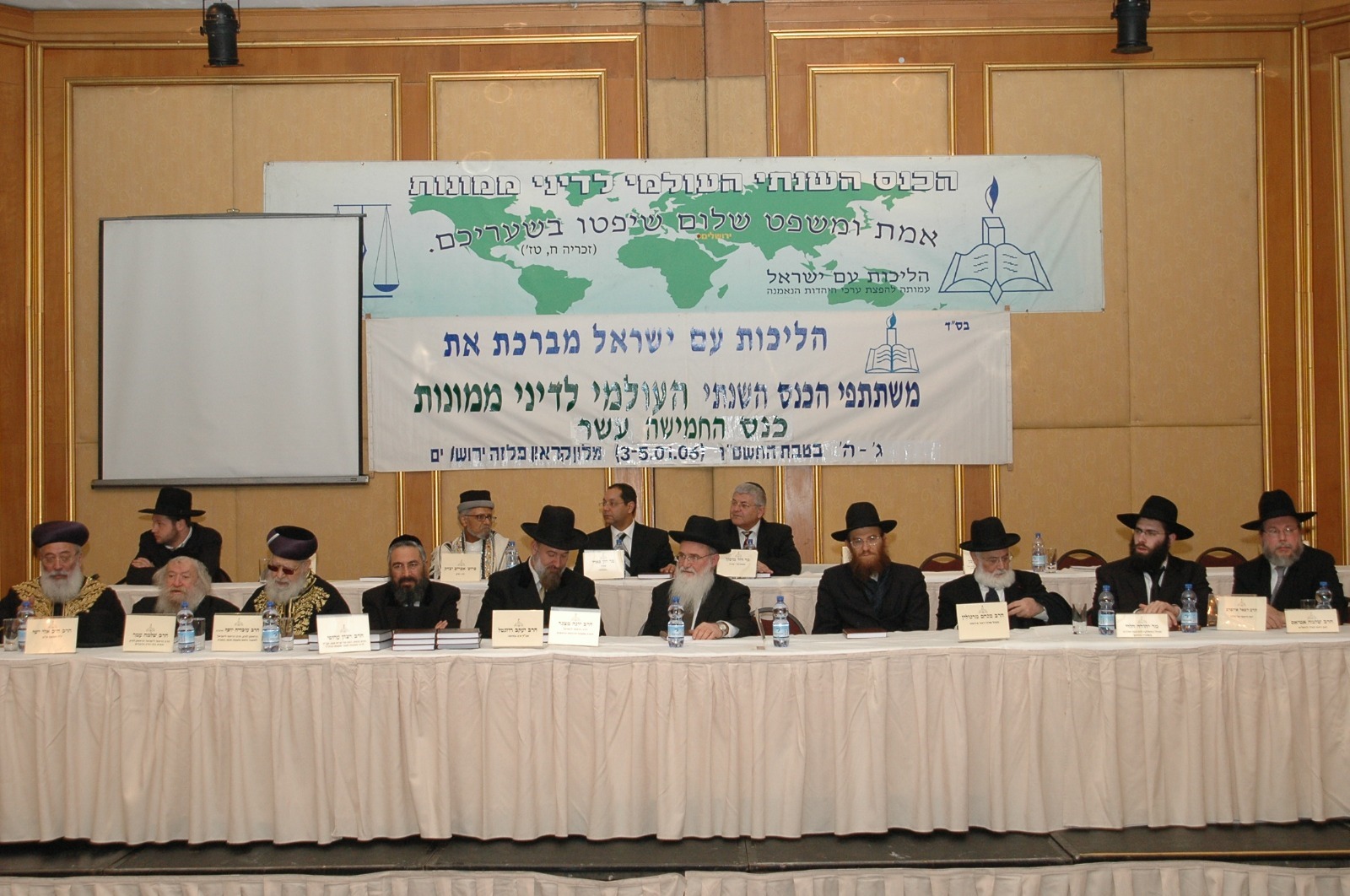
Isn't your court initiative a form of competition against the Chief Rabbinate?
"Firstly, I have been a member of the Chief Rabbinate Council for five terms," Rabbi Arusi notes. "Secondly, you need to know that religious councils do not operate monetary courts, only regional courts authorized to rule on personal status issues. Unfortunately, the Supreme Court stripped regional courts of the authority to rule on monetary issues, but even when this authority is restored, a significant percentage will prefer to turn to the 'Halichot Am Yisrael' court due to both ease of access and because it deals solely with monetary issues. Our initiative complements the Chief Rabbinate of Israel."
And won't the Supreme Court be able to stop your activities?
"We operate under the arbitration law. According to this law, any citizen is permitted to engage in arbitration. Because the current government is right-wing, my dream is to turn our initiative into a national project, in collaboration with all enforcement agencies and the judicial authority."
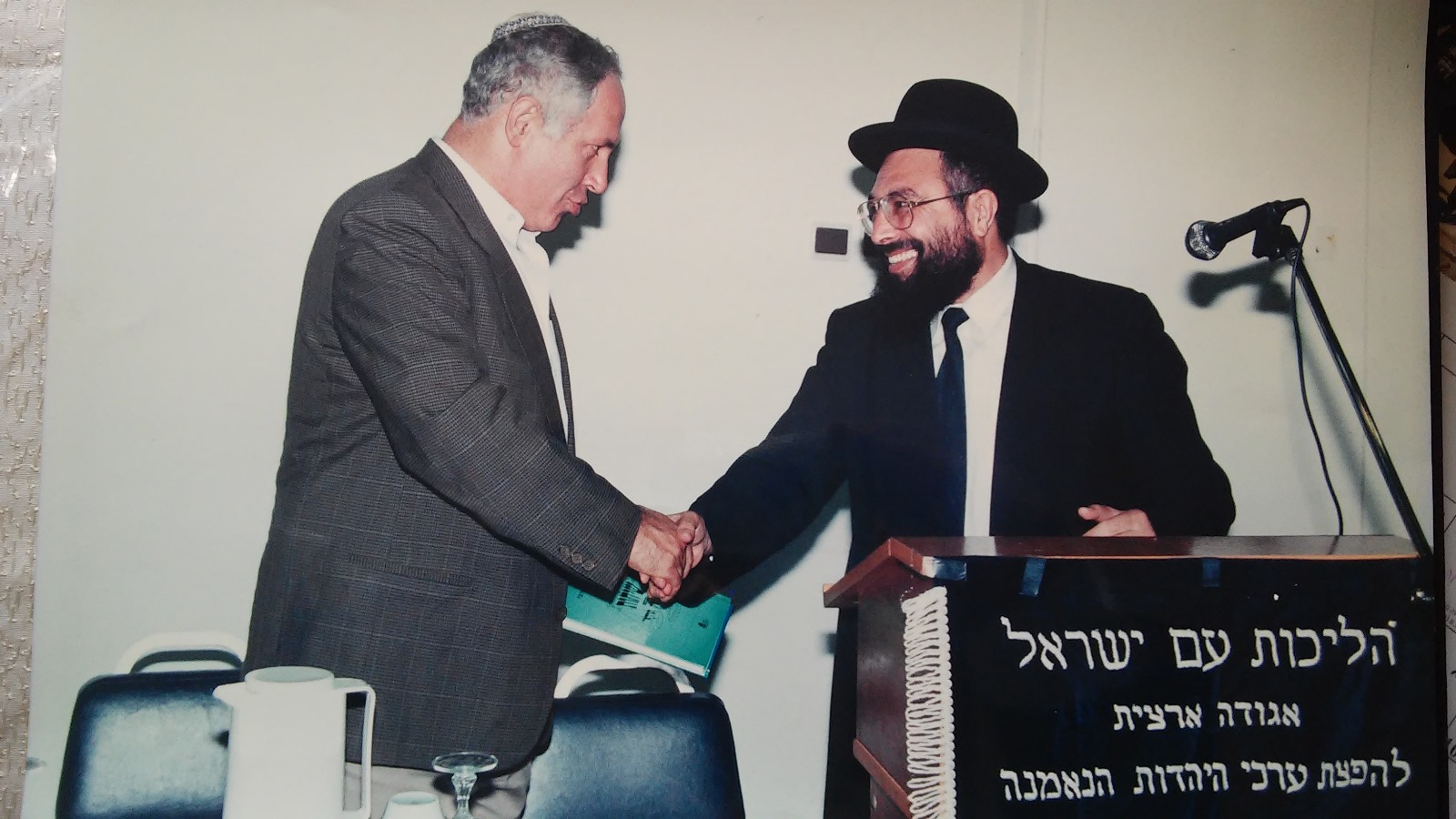
How do you think the Supreme Court and the Israeli legal system will react to the initiative?
"As these courts become an existing reality where a significant percentage of Israel's population comes to adjudicate, even Supreme Court justices will understand that our legal system is vital and necessary and that they should accept it. I'll tell you more: even now, a substantial portion of the system has begun referring cases to us, and we receive non-religious lawyers."
Doesn’t it bother them that you rule according to Torah law?
"At first, it scares them because they are accustomed to court proceedings where everything operates differently," Rabbi Arusi describes. "But I instruct the judges to craft a professional and high-quality ruling and only afterward incorporate the Torah perspective into it. When these lawyers see the professionalism of the rulings and their orderly fashion, it reassures them."
This is essentially the "everything is judiciable" revolution in a Torah version...
(Laughs) "Right, but not in criminal law, only in civil law. The only authority permitted to handle criminal cases and punitive law is the State of Israel alone."
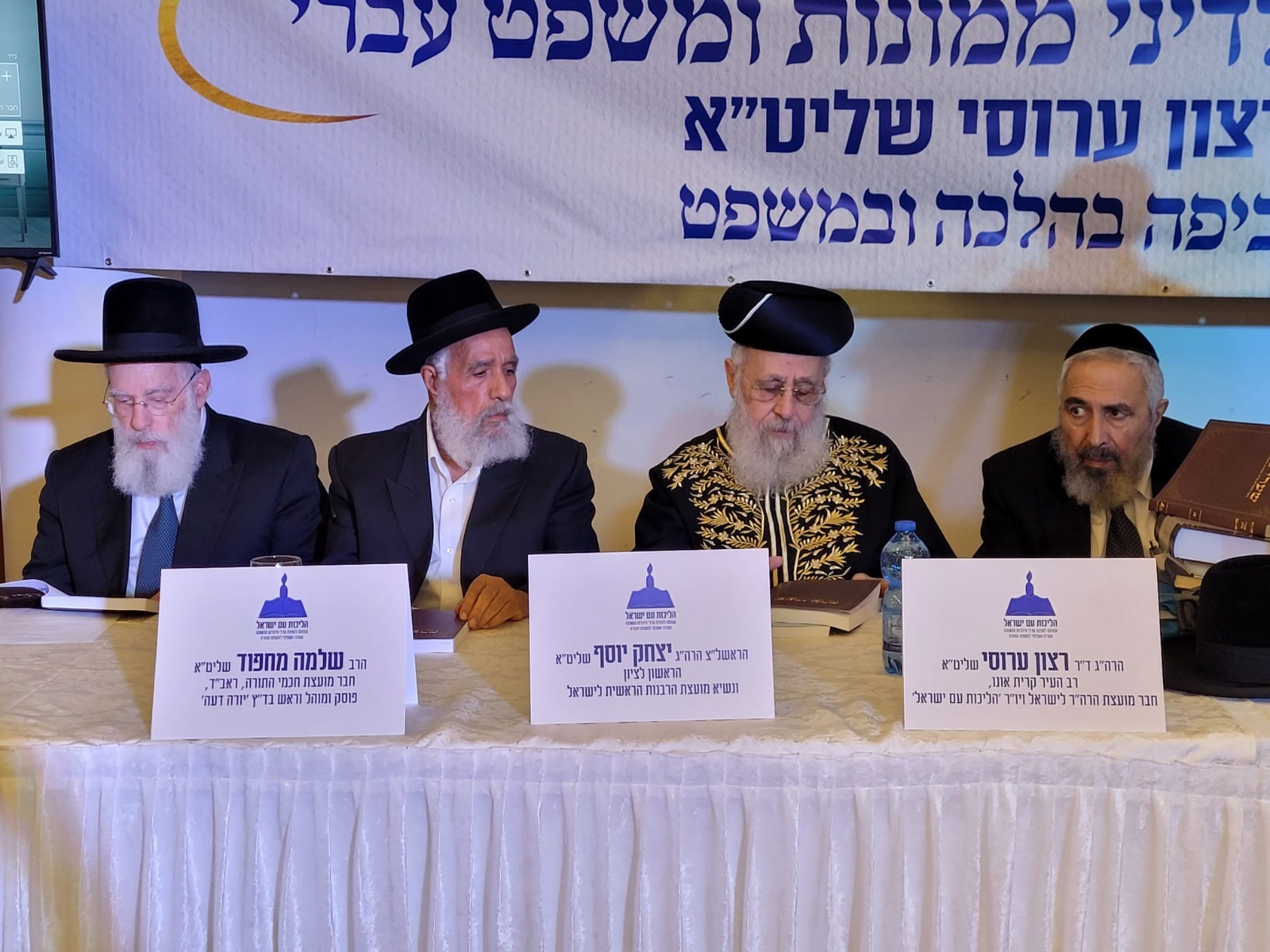
Have you had a chance to meet Aharon Barak?
"I was Barak's student during my studies at Bar-Ilan University. Later, when Chanan Porat, may his memory be a blessing, served as Chair of the Constitution Committee, he proposed that I serve as a judge on the Supreme Court," Rabbi Arusi reveals. "But I had a condition that Barak would agree to separate the roles of being a great appellate court from the authority he assumed to rule on constitutional law. I thought, and still do, that when dealing with national issues, diverse public figures from across the country should be involved. When Barak heard this, Chanan Porat’s proposal was rejected."
Do you regret that?
"No."
"I Have a Dream"
Rabbi Arusi shares that according to plan, the "Halichot Am Yisrael" center was supposed to start operating, but its opening is delayed due to technical reasons: "We still don't have Form 4 for our center, following the recent municipal elections in Kiryat Ono and the local government change. These days, I am in contact with the elected mayor and hope to receive her help. Of course, we have opponents in the coalition, such as Lapid’s party, but with Hashem's help, we will overcome this."
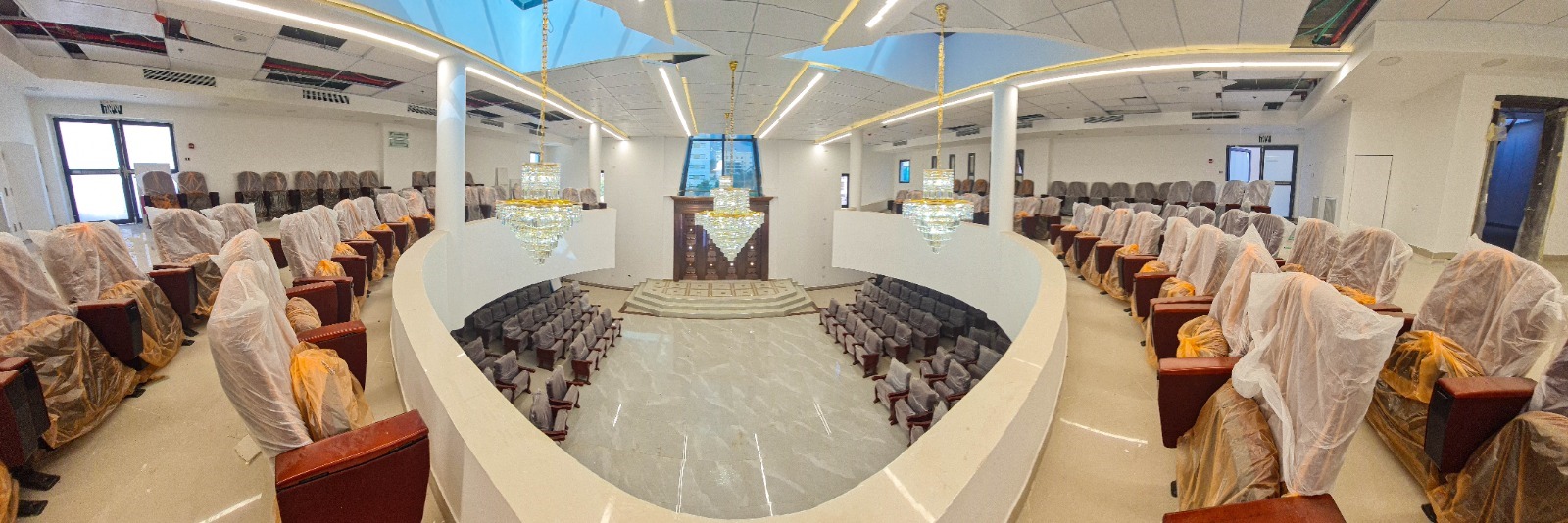
Finally, what's your dream?
"My dream is essentially the prayer we say daily: 'Restore our judges as at the first and our counselors as at the beginning.' I wait for the day when the 'Halichot Am Yisrael' center opens, and three monetary courts with numerous panels start to operate there. Only then will the legal system of the State of Israel return to biblical law. This will be a competition with the Supreme Court."
"And I have another dream," Rabbi Arusi reveals. "I want to establish a Museum of the Bible, through which we will attract all sorts of diverse audiences to Judaism. In this advanced museum, artistic creations related to the Bible will be displayed, and it will feature fascinating and experiential lectures. With Hashem's help, this will happen soon."

